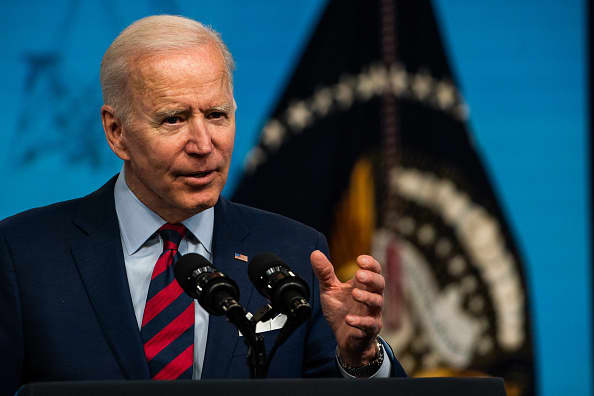President Joe Biden on Sunday declared the settlement between two Korean battery makers a victory for U.S. efforts to build a strong supply chain for electric vehicles in order to create clean energy jobs and curb climate change.
The settlement over a trade secrets dispute between LG Energy Solution and SK Innovation Co. will allow two plants in Georgia to move forward with plans to produce lithium ion batteries for Ford and Volkswagen.
The companies agreed to drop litigation in the U.S. and South Korea and not pursue further lawsuits for a decade. SK Innovation will also pay LG Energy Solution $1.8 billion in cash and royalties.
The deal came before the Biden administration’s deadline Sunday evening to reverse a U.S. International Trade Commission decision unless the battery makers reached a settlement.
The settlement is a major win for the Biden administration, which recently unveiled a sweeping infrastructure plan that includes $174 billion in spending to boost the electric vehicle market and shift away from gas-powered cars.
“We need a strong, diversified and resilient U.S.-based electric vehicle battery supply chain, so we can supply the growing global demand for these vehicles and components – creating good-paying jobs here at home, and laying the groundwork for the jobs of tomorrow,” Biden said in a statement.
A failure to resolve the dispute may have cost thousands of jobs in Georgia and threatened the country’s EV market, which comprises roughly 2% of new auto sales.
The president’s proposal involves installing at least 500,000 charging stations across the country by 2030, incentives for Americans to purchase EVs and money to retool factories and boost domestic supply of materials.
“Today’s settlement is a positive step in that direction, which will bring some welcome relief to workers in Georgia and new opportunity for workers across the country,” Biden said.
Jong Hyun Kim, CEO of LG Energy Solution, and Jun Kim, CEO of SK Innovation, said in a joint statement that the firms would “compete in an amicable way, all for the future of the U.S. and South Korean electric vehicle battery industries.”
“We are dedicated to work together to support the Biden administration’s climate agenda and to develop a robust U.S. supply chain,” they said.
